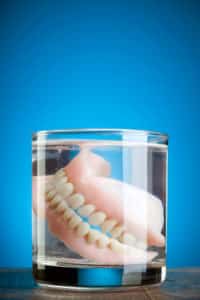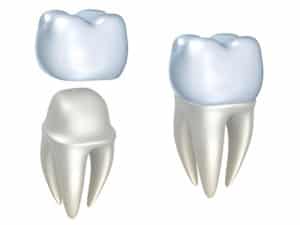
Getting Used to Dentures
We need to eat and just because you came home with a new set of dentures doesn’t mean that you can’t eat! It does help however, if you stick to very soft foods for at least the first couple of days. The foods you eat on the first day or two need to be soft enough that you can mash them with your tongue against the roof of your mouth if chewing is too uncomfortable. This doesn’t mean that you need to be on a liquid diet for the first couple of days!
Cooked carrots, mashed potatoes and baked sweet potatoes are good nutritious foods that are soft enough not to cause you pain during eating. Avoid extremely hot or cold foods for the first two days as your gums may be irritated and tender. Softer foods also can include yogurt, puddings, soft bread and scrambled eggs.
Give yourself time to heal, especially if your new dentures came following tooth extractions. You need to get plenty of rest and let yourself heal. As you are adjusting to eating and chewing, you may also notice that your speech is slightly different. Practice your speech by reading aloud and singing along with music. This can help retrain your tongue and cheek muscles to enunciate with your new dentures in place.
Remember to take it easy for the first couple of days, eat soft foods and get plenty of rest. Call our office immediately if you are experiencing any severe pain or discomfort.

 One of the most commonly used restorative procedures in dentistry today is the dental crown. Having been around for a long time, most people know these are used to protect a tooth that’s become damaged. Unfortunately, even if you have insurance, you’ll probably still have to pay for your dental crown which may leave you wondering if getting one is truly necessary.
One of the most commonly used restorative procedures in dentistry today is the dental crown. Having been around for a long time, most people know these are used to protect a tooth that’s become damaged. Unfortunately, even if you have insurance, you’ll probably still have to pay for your dental crown which may leave you wondering if getting one is truly necessary.